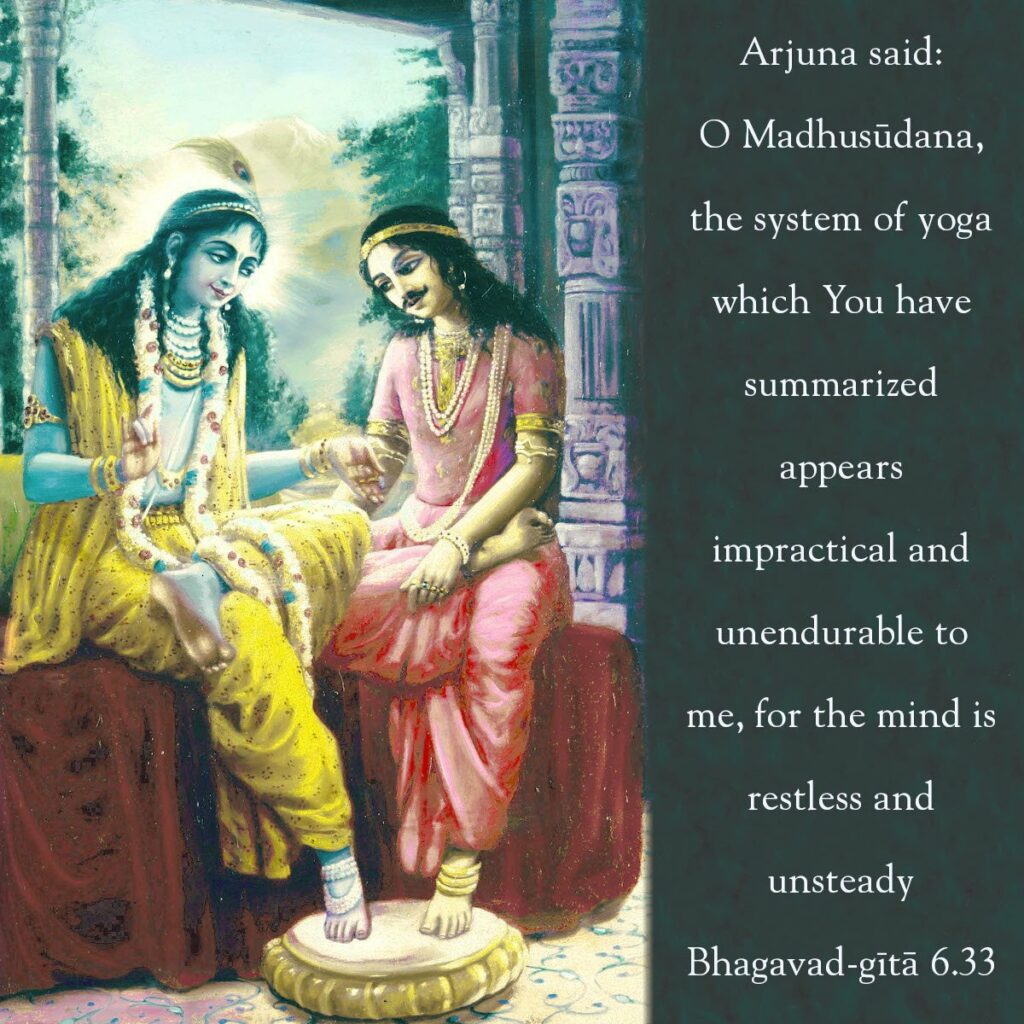अर्जुन उवाच |
योऽयं योगस्त्वया प्रोक्त: साम्येन मधुसूदन |
एतस्याहं न पश्यामि चञ्चलत्वात्स्थितिं स्थिराम् || 33||
arjuna uvācha
yo ’yaṁ yogas tvayā proktaḥ sāmyena madhusūdana
etasyāhaṁ na paśhyāmi chañchalatvāt sthitiṁ sthirām
arjunaḥ uvācha—Arjun said; yaḥ—which; ayam—this; yogaḥ—system of Yog; tvayā—by you; proktaḥ—described; sāmyena—by equanimity; madhu-sūdana—Shree Krishna, the killer of the demon named Madhu; etasya—of this; aham—I; na—do not; paśhyāmi—see; chañchalatvāt—due to restlessness; sthitim—situation; sthirām—steady
Translation:
Arjuna said: The system of Yoga that you have described and attainable by equality of mind, O Madhusudana, appears impractical and unattainable to me, due to the restless mind.
Commentary:
Arjuna interrupts the Lord’s discourse by submitting his own incapacity to attain the yoga which requires equanimity of mind as the condition of its practice and achievement. Evidently, Arjuna is conscious of his own inadequate power of concentration on reality. Every common human being is in the same position as Arjuna. So his question is the question of all human beings with very rare exceptions. As it is said already, Arjuna stands as a representative of the common man, though of higher culture, in his search for truth. Unsteadiness of mind is the basic problem for all seekers. If the mind is brought to a state of firmness, any yoga is practicable. Otherwise, nothing is possible. Arjuna opens his mind to the Lord and confesses his weakness without reservation. So should the disciple place before the Guru his difficulties frankly. The sick man should explain his bodily condition without reservation to the doctor. Even those secrets which he would not reveal to others should be explained to the physician. Only then can the physician prescribe the correct medicine.
By equality of mind: We understand that Dhyanayoga demands one-pointed concentration of the entire mind in Atma. Unless the hand is steady one cannot pass the thread through the eye of the needle. Unless one sits steady and motionless, no photograph can be properly taken. So the object of concentration cannot become clear unless the roving mind comes to a standstill.
The word ‘Samyena‘ may also be interpreted as equality of vision (Sarvatmadrishti) mentioned in the previous verse.
Bhagavad Gita: Chapter 6 🔻 (47 Verses)
